watering water
Palm_shade
10 years ago
Featured Answer
Sort by:Oldest
Comments (28)
asleep_in_the_garden
10 years agolast modified: 9 years agoPalm_shade
10 years agolast modified: 9 years agoRelated Professionals
Brentwood Landscape Architects & Landscape Designers · Lakewood Landscape Architects & Landscape Designers · Palm Springs Landscape Architects & Landscape Designers · Saint Matthews Landscape Architects & Landscape Designers · Byram Landscape Contractors · Conroe Landscape Contractors · Dixon Landscape Contractors · East Haven Landscape Contractors · Lake Saint Louis Landscape Contractors · New Cassel Landscape Contractors · Saint Paul Landscape Contractors · San Bruno Landscape Contractors · Soddy Daisy Landscape Contractors · Tehachapi Landscape Contractors · Norridge Landscape Contractorsasleep_in_the_garden
10 years agolast modified: 9 years agoPalm_shade
10 years agolast modified: 9 years agoasleep_in_the_garden
10 years agolast modified: 9 years agoTiffany, purpleinopp Z8b Opp, AL
10 years agoTiffany, purpleinopp Z8b Opp, AL
10 years agoPalm_shade
10 years agolast modified: 9 years agotapla (mid-Michigan, USDA z5b-6a)
10 years agolast modified: 9 years agoozarkia
10 years agolast modified: 9 years agoPalm_shade
10 years agolast modified: 9 years agomonet_g
10 years agolast modified: 9 years agogreentoe357
10 years agolast modified: 9 years agokeylyn
10 years agolast modified: 9 years agogaryfla_gw
10 years agolast modified: 9 years agotropicbreezent
10 years agoasleep_in_the_garden
10 years agolast modified: 9 years agotapla (mid-Michigan, USDA z5b-6a)
10 years agolast modified: 9 years agoPalm_shade
10 years agolast modified: 9 years agoTiffany, purpleinopp Z8b Opp, AL
10 years agoTiffany, purpleinopp Z8b Opp, AL
10 years agoTiffany, purpleinopp Z8b Opp, AL
10 years agoasleep_in_the_garden
10 years agolast modified: 9 years agofandog
10 years agolast modified: 9 years agoasleep_in_the_garden
10 years agolast modified: 9 years agotapla (mid-Michigan, USDA z5b-6a)
10 years agolast modified: 9 years agoLuke Rizzuto
3 years ago
Related Stories
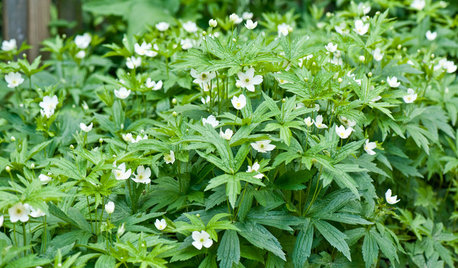
GARDENING GUIDESGreat Design Plant: Anemone Canadensis Adds Pizzazz to Water’s Edges
Plant Canadian anemone along pond, lake or stream edges for a splash of white flowers in late spring
Full Story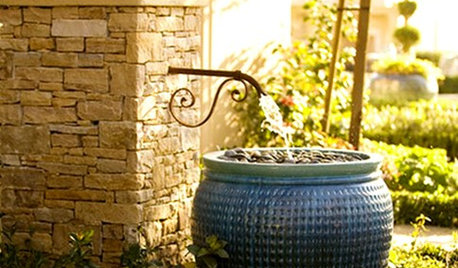
GREEN BUILDINGJust Add Water: Rain Barrel Magic
Take your rainwater storage from practical to beautiful with a new breed of design-friendly rain barrels
Full Story
SAVING WATER11 Ways to Save Water at Home
Whether you live in a drought-stricken area or just want to help preserve a precious resource, here are things you can do to use less water
Full Story
HEALTHY HOMEHow to Choose a Home Water Filtering System
Learn which water purification method is best for your house, from pitchers to whole-house setups
Full Story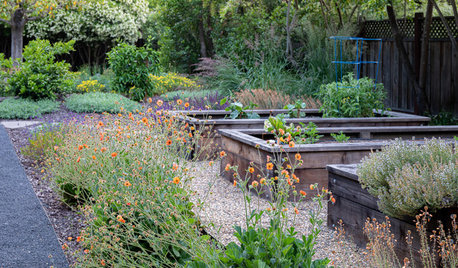
GARDENING GUIDESEssential Watering Tips for Your Edible Garden
To give your edible plants just what they need, check out these guidelines for how, when and how much to water
Full Story
LANDSCAPE DESIGNGet Along With Less Lawn — Ideas to Save Water and Effort
Ditch the mower and lower your water bill while creating a feast for the eyes with diverse plantings and gathering places
Full Story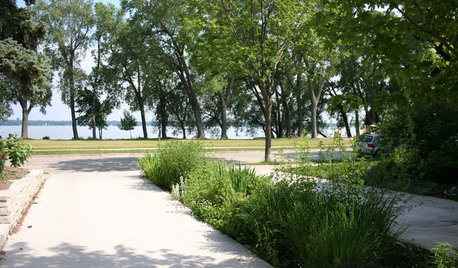
LANDSCAPE DESIGNHow to Design Your Landscape to Sink Water Into the Ground
Learn to infiltrate stormwater, even on challenging sites
Full Story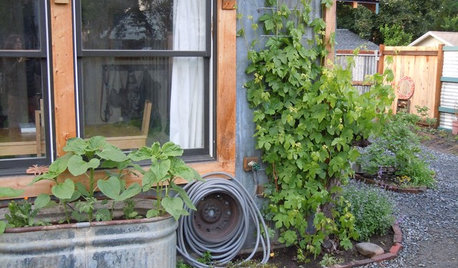
GARDENING GUIDESEdible Gardening Essentials: Tips for Traditional Hand Watering
Save the expense and hassle of a complicated garden system with a simple watering can or inexpensive hose add-ons
Full Story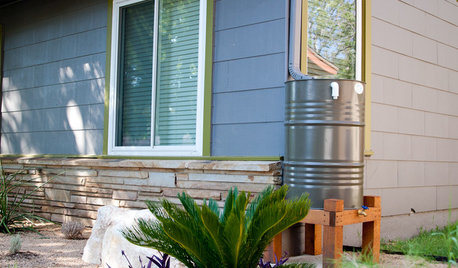
GREEN DECORATINGEasy Green: Big and Small Ways to Be More Water-Wise at Home
These 20 tips can help us all make the best use of a precious resource. How do you save water in summer?
Full Story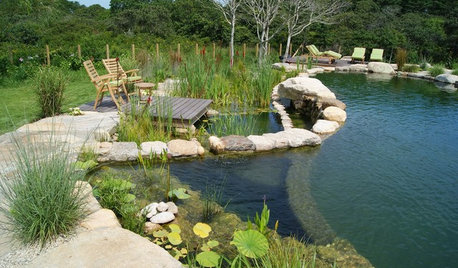
LANDSCAPE DESIGNSecrets of a Successful Water Garden
Relax. Having a water garden is much easier once you understand the basics
Full StoryMore Discussions






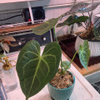

asleep_in_the_garden